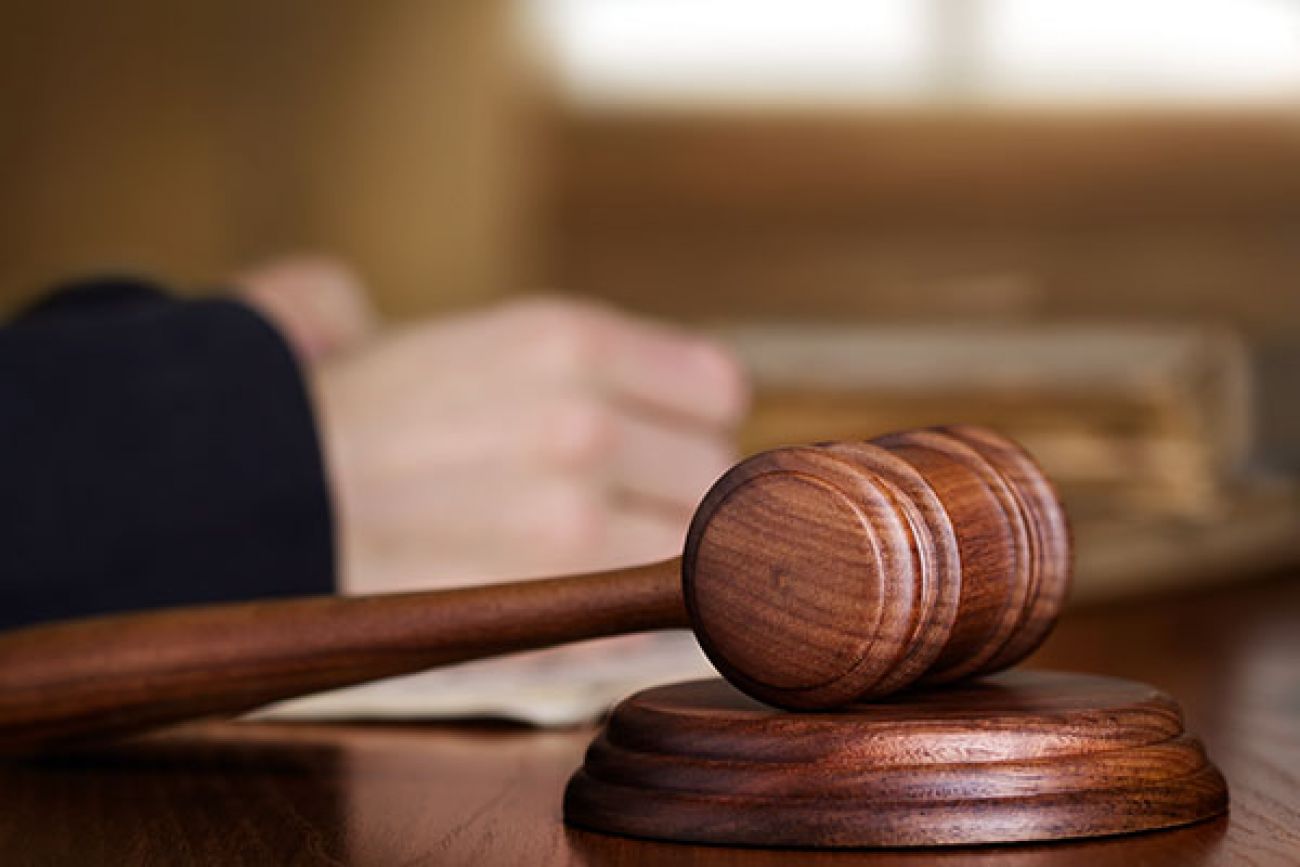Michigan abortion ban remains on hold following court hearing Wednesday

- An Oakland County judge extended a delay on enforcing the state’s abortion ban for at least two more weeks
- The 91-year-old state statute bans abortions in nearly all cases.
- An attorney for prosecutors who want to enforce the ban argues the order creates rights “out of thin air.”
Aug. 19: Judge: Michigan abortion ban ‘dangerous,’ old law unenforceable amid suits
PONTIAC — A Michigan judge extended an emergency order Wednesday that prevents county prosecutors from charging abortion providers under a 1931 law that bans most abortions.
At an afternoon hearing, Oakland County Circuit Court Judge Jacob Cunningham said he is extending his temporary restraining order through at least Aug. 17, the latest turn in multi-pronged battle over abortion access in Michigan.
Cunningham, who first issued the order on Monday, said keeping the order in effect maintains the status quo in the state and thus does not pose immediate harm to prosecutors interested in enforcing the long-dormant statute.
Related:
- Michigan abortion waits stretch for weeks as out–of-state patients pour in
- Michigan abortion ban is — then isn’t — in effect after two court rulings
- Meet the judge keeping abortion legal in Michigan (for now)
- With Roe in doubt, Gretchen Whitmer moves to protect abortion in Michigan
The order follows months of legal maneuvers and challenges in the state since it first became known that the U.S. Supreme was likely to strike down federal abortion protections in Roe v. Wade and return such decisions to the states.
In May, a Michigan Court of Claims judge first suspended enforcement of the 1931 law. Then early Monday, a state appeals court panel concluded that while the May order barred the state Attorney General’s office from enforcing the 1931 law, it did – indeed, could not – prevent county level prosecutors from doing so.
Hours later on Monday, Cunningham, the Oakland County judge, issued the TRO, accepting the legal argument of Gov. Gretchen Whitmer’s attorneys that uncertainty over the status of the old statute unduly harmed abortion providers and their patients.
Cunningham said on Wednesday that he would decide at the Aug. 17 hearing whether to grant a request for preliminary injunction against the abortion statute, a likely longer-lasting order than a TRO.
Cunningham made clear Wednesday that he was viewing arguments over the need for a continuing order narrowly, a small slice of a much larger and more complicated legal journey over abortion rights in Michigan.
At issue is a 91-year-old Michigan law that was set to take effect after the U.S. Supreme Court in June overturned Roe, the 1973 decision had guaranteed the right to abortion nationwide for nearly 50 years.
In May, Court of Claims Judge Elizabeth Gleicher issued an injunction preventing state Attorney General Dana Nessel and anyone under her office’s "control or supervision" from enforcing it. Nessel, a Democrat and pro-choice advocate, has repeatedly vowed her office would never enforce the 1931 statute, even if it was to go back into effect. And prosecutors from several blue-leaning counties offered similar assurances.
But Jackson County Prosecutor Jerard Jarzynka and Kent County Prosecutor Chris Becker signaled they did not consider their offices bound by Gleicher’s order and, further, said they'd consider issuing charges against providers under the right circumstances. In its ruling early Monday, the appeals court panel agreed with that interpretation, even as it rejected the prosecutors’ legal standing to be a party in the litigation.
But Cunningham’s 3-page temporary restraining order hours later once again put that option for local prosecutors on hold. .
Linus Banghart-Linn, an attorney in the Attorney General’s office, argued Wednesday that it was critical that Cunningham leave the TRO place to prevent the kind of chaos that will erupt if patients and doctors could not know for sure which county prosecutors would enforce the law, and which would not.
Abortion providers, hospitals and others need clarity, but nobody needs that guidance more urgently than the patients seeking the procedure. Those patients “can't wait six months for a trial. You can't wait till November or however long it's going to take if you need one. You need (an abortion) today. or very, very soon.”
A restraining order, Banghart-Linn said, preserves the status quo and “prevents the kind of chaos and confusion that is resulting from the sort of flip-flops that we’ve seen.”
As an example, he noted that the Beaumont and Spectrum health system, now known as BHSH, first issued a staff-wide statement on the day in June when Roe was overturned indicating that abortion was now illegal in Michigan and the health system would no longer provide the procedure. BHSH then walked back that claim in a second message, saying the system would, in fact, provide abortion.
Banghart-Linn said the state plans to make a request for a preliminary injunction in the coming days, but he asked Cunnigham to keep the restraining order in place until then.
In April, Whitmer, a first-term Democrat up for reelection in November, filed a lawsuit asking the Michigan Supreme Court to rule directly on whether the 1931 law violates the due process and equal protection clauses of the Michigan Constitution and deprives women of basic reproductive health protections. That suit began in Oakland County, which is why Whitmer returned to the court this week seeking the TRO.
David Kallman, an attorney representing Right to Life and the Michigan Catholic Conference, which oppose abortions, argued that such rights don’t exist in Michigan. He told the judge Wednesday that in granting and extending the temporary restraining order Cunningham would, in effect, be creating abortion protections in Michigan “out of thin air.”
“The governor is not trying to protect a right, but to create one,” Kallman said, adding later: “You can’t create constitutional rights out of thin air.”
“That’s what they ‘ve asked you to do, Judge,” Kallman said.
Kallman also argued that a TRO can only be granted if it’s shown that the party applying for the order would face “immediate and irreparable injury or loss” if the order was denied. In this case, he said, the party applying for this protection is “not women in Michigan. The applicant is Gov. Whitmer.”
Turning around the legal argument of abortion rights advocates, Kallman said the irreparable harm in the case, if there is any, is to the thousands of lives lost through abortion.
That drew a rebuke from attorneys representing Whitmer.
“I'm concerned about my 12-year-old rape victim that won't know whether or not she can go to a medical professional and end that pregnancy because it was a result of rape,” said attorney Angela Baldwin, who represented Oakland County Prosecutor Karen McDonald at the hearing.
“The real issue here is we need to give stability and safety to women in this state (so) that they know what the state of the law is, because it's their bodies,” Baldwin said.
See what new members are saying about why they donated to Bridge Michigan:
- “In order for this information to be accurate and unbiased it must be underwritten by its readers, not by special interests.” - Larry S.
- “Not many other media sources report on the topics Bridge does.” - Susan B.
- “Your journalism is outstanding and rare these days.” - Mark S.
If you want to ensure the future of nonpartisan, nonprofit Michigan journalism, please become a member today. You, too, will be asked why you donated and maybe we'll feature your quote next time!







